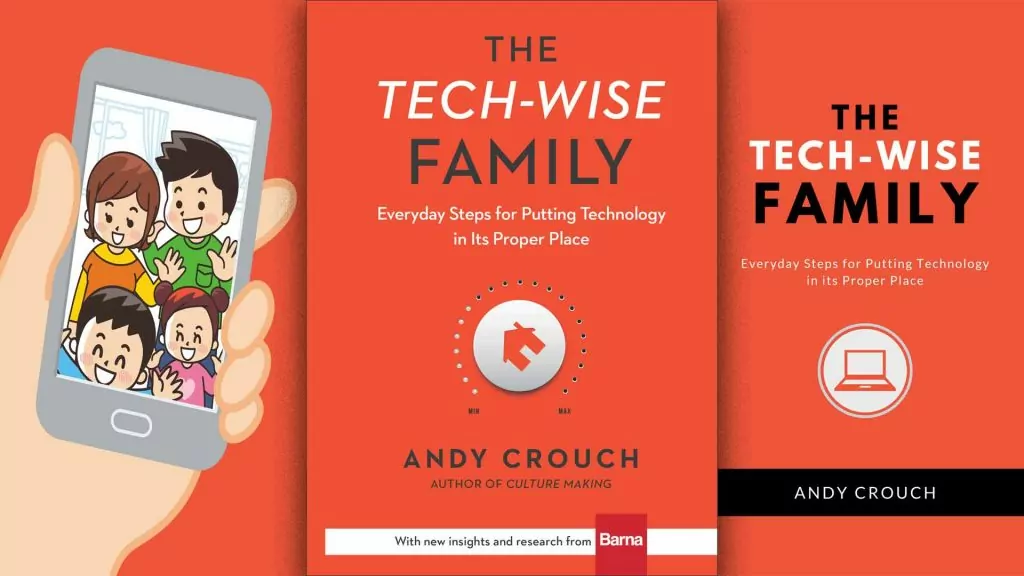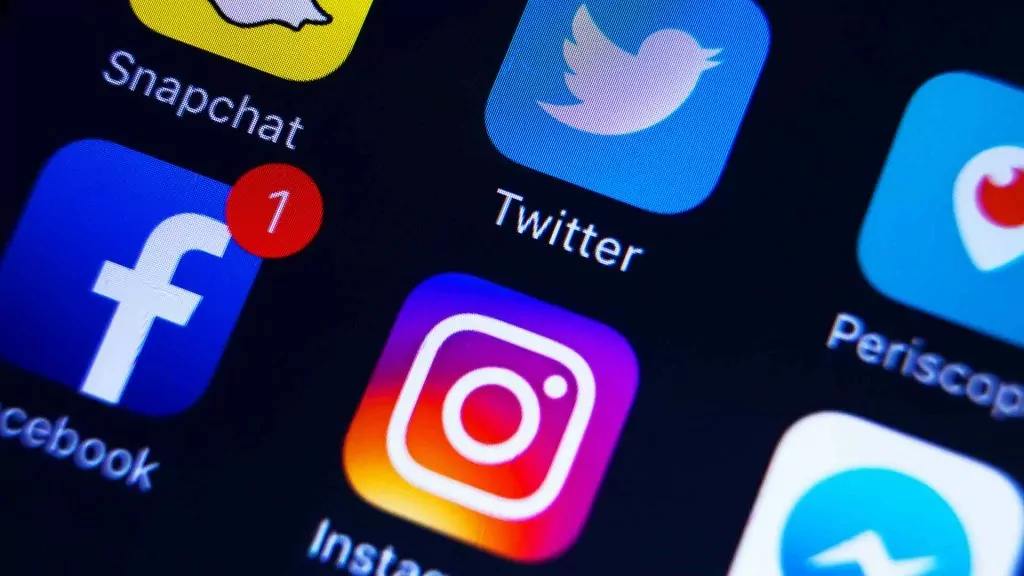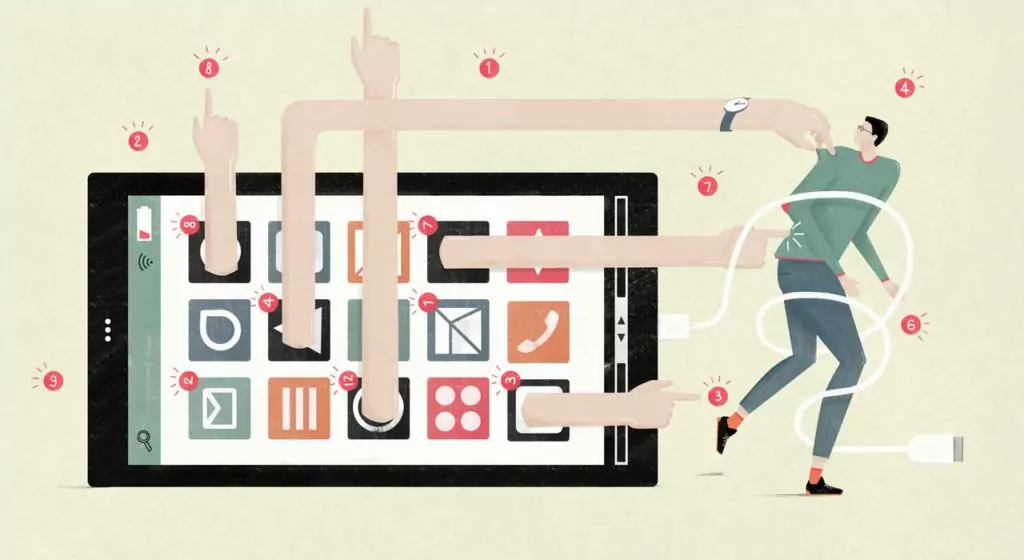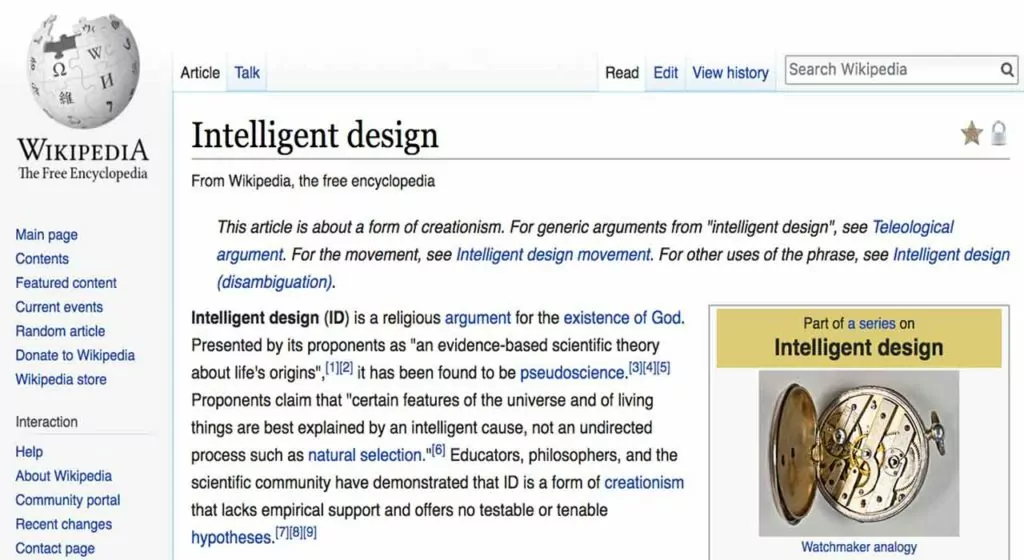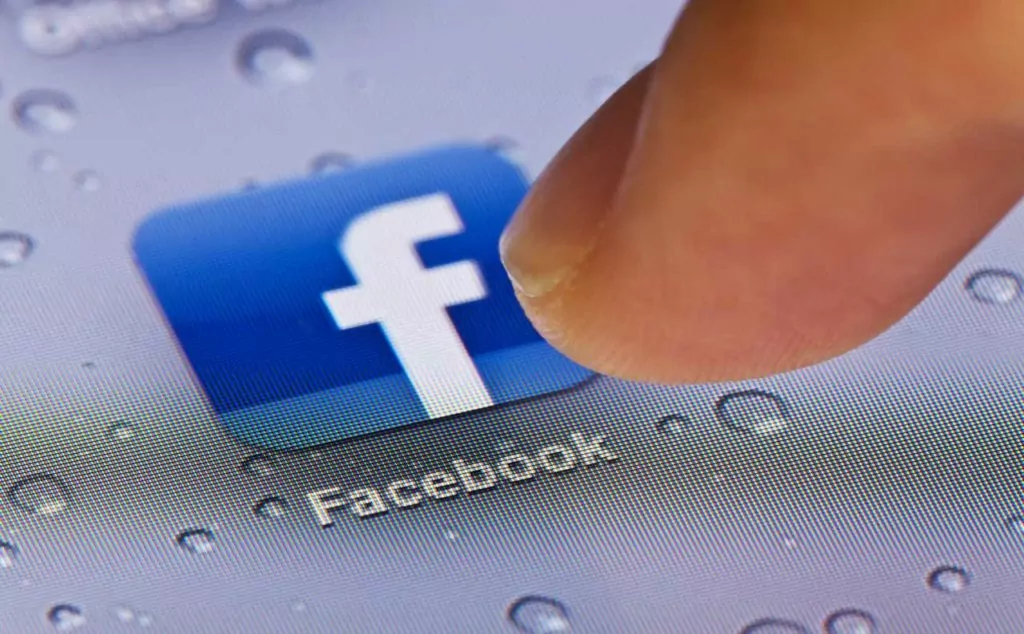Technology and our anxious hearts
As a pastor I get to talk to lots of people. After some conversation, I start to get a sense of where people stand. How are they doing? What’s on their mind? Anything bothering them? And maybe it won’t surprise you to hear that quite a few people are anxious. I don’t necessarily mean that in a clinical way, as a mental health disorder. But more generally, people have this feeling of unease, being unsettled, fearful and restless.
It’s common, so common that probably everyone experiences it. And there can be a host of factors that contribute to our feeling of unease. If my stomach is kind of unsettled for weeks on end, then I’m going to start getting anxious. If you’re running low on money, you might be anxious. Other times there might not be a particular reason that we can put our finger on, but we still feel it: anxiety and fear. Far deeper than any one cause, it’s a basic condition for human beings, a component of who we are as a weak and sinful people, living in a world that is broken, difficult, and often hostile.
Maybe you’ve heard this before, but do you know what is the most repeated command in the Scriptures? What’s the thing that God tells us to do most often? People usually think that it’s something like, “Love one another.” Or “Praise the Lord.” But the most repeated command in Scripture is this: “Fear not.”
God says it to his special servants like Joshua. His angels say it to the people to whom they’re bringing messages. His prophets say it to Israel: “Do not fear.” And Jesus says it to his believers: “Do not be afraid.” More than 350 times in Scripture we find the command: “Fear not.”
We need to hear that, because we do fear. It’s symptomatic of being a human.
TECHNOLOGY ON THE BRAIN
I’d like to unpack another factor in our daily fears and anxieties: technology. By technology I mean specifically things like the portable and connective devices that we have with us so much of the time, those devices that are always nearby and available: smartphones, laptops and other computers, and tablets. Some of us sit in front of screens all day and then, even when not at our desks, we continue to engage with technology. Also for those who don’t have an office job, so much time is spent with this technology: before work, during work, after work; before class, during class, after class.
It’s hard for us to grasp how massive a change has happened in this area of portable technology. For instance, in a single decade we have rushed from a world with zero smartphones to a world with approximately two billion smartphones. We bought these devices because of what they promised to do for us, but we can be sure that they’re also doing something to us.
REASONS FOR ANXIETY
People have only started to think about the impact of this almost constant interaction with technology. With this relentless stimulation, the brain is not getting time to rest. And this can make us anxious for a number of reasons. Let’s look at a few of these reasons, and how we can counteract this anxiety with God’s truth.
Reason #1 – FOMO
One of the reasons that our use of technology can make us anxious is that it trains our brains to need a constant intake of information. Our brains are plastic and shape-able, and we are being programmed to expect continuous updates in a whole number of aspects of life. These updates are for everything ranging from significant international events in Moscow, to trivial things like what our friends had for breakfast this morning.
And when we don’t get these updates, we feel disconnected and disconcerted. When we don’t have a chance to read them, or when we don’t have our electronic device on our person, it’s like the world is going by without us. It’s an affliction that is becoming widespread these days – an affliction so widespread that it has already entered the Oxford English Dictionary. What is it? FOMO. It’s a catchy acronym that stands for “Fear Of Missing Out.” According to one definition, it’s:
the state of mental or emotional strain caused by the fear of missing out; a compulsive concern that one might miss an opportunity or a satisfying event.
Missing the boat, missing the bus, missing an opportunity, or missing an event with friends – we’ve all experienced missing out in some way or another. So the fear of missing out is a universal experience. What does that look like in relation to our use of technology? The closeness of our phone to our eyeballs, and the connectivity of our computer to Wi-Fi or 4G networks, makes this a real struggle.
We’re used to getting a constant refresh and update on things, whether about world events, or about how our life looks in comparison with others, or something else. As often as we log in and start scrolling around, there is a recharge of our fear that we’ve missed out on something. We want to know, we want to see, we want to comment. Whether it’s a breaking-news alert, a vibrating notification, or a text message, there’s an immediacy to every moment. Our phones make our lives vulnerable to that feeling that somewhere, somehow, something interesting is happening – right now! We’re addicted to anything new, and the newer the better. See whether you can relate to these scenarios:
SCENARIO #1– You wake up in the morning, and what is the first thing that you do? You reach over to your bedside table, and check your phone. Who sent you a message? Who posted something? And you’re kind of alarmed to see that last night while you were getting your beauty sleep there was a conversation among your friends about something important – you missed it. There’s a twinge of regret.
SCENARIO #2 –You’ve got a few minutes before you need to get going, so you head over to your favorite social media site. You see that one of your friends has been posting pictures of her amazing holiday: beautiful beaches, exciting cities, lots of artful shots of food and drink. And here you are, getting ready to clean the toilets again, or to listen to a two-hour lecture at university. Your life is unquestionably lousy. You’re missing out on fun and adventure.
SCENARIO #3– You’re going to bed at night. You brush your teeth, etc. Then you lay down and read your Bible. But then, one last time, you check your phone: Any messages? Anything new? Not this time. But what about when you wake up? What will you have missed? There’s another twinge of anxiety.
As you’ve probably experienced, we can get into a compulsive habit of going online. It’s not just checking social media, but other websites. What videos are on top at YouTube? Who is Kendall Jenner dating these days? What did Meghan Markle wear to the polo match with Prince Harry? What memes are trending? At one level we realize that we don’t really care about all these things, but we still choose to read and watch. We’d hate to miss out.
Maybe you’ve heard about the studies that connect social media with depression. In an alarming number of users of social media, there is an almost immediate feeling of sadness when a person logs off. It’s even become a shorthand term, “Facebook depression” – or maybe “Insta-gloom.” Checking on the status of our friends often forces us to deal with people who are either more successful than we are, or more attractive, more whatever. We’ve just seen what is not ours. We’ve been reminded that our life is not as interesting. We wish people could see how good w eare, and we’re anxious to portray ourselves in a positive light – so we keep trying to set up the perfect selfie. And then we worry when it’s not possible.
Response: you won’t miss out
By now FOMO has become a joke and a hashtag. Yet it describes a deep insecurity that dwells inside each of us.
And FOMO is neither unique nor modern, but pre-dates Wi-Fi and our always-connected phones. We can remember those days when we didn’t have a phone, but even back then, we had our fears of missing out, didn’t we? In Grade 4 there was a birthday party, and you weren’t going – that’s a pretty rotten feeling. Or you heard about the excellent business opportunity that a brother in your church received. You could’ve been part of that – why weren’t you invited? More FOMO!
The problem is that our sinful natures will always say that if we could just have our idols (whatever they are), eventually they’ll be able to satisfy us. That goes all the way back to Paradise. What more could Adam or Eve want than what God had given? But Satan said, “Escape your creature-hood. Define your own truth. Keep the glory for yourself. Why miss out on becoming like God with just one bite?”
Today that devilish offer still stands. FOMO smoulders in the human heart. The Bible calls it coveting, a faithless desire to possess something that doesn’t belong to us. We attach to idols our deep longing for happiness, thinking that a person or a possession or achievement or status or experience will finally make us happy. That’s why we keep searching, keep scrolling, keep buying – because we’re looking for something more.
But the anxiety caused by the fear of missing out is a lie. It denies the immense riches of what we have in God and through Christ Jesus. At the heart of the gospel is the living God who sent his only Son so that with his blood He could buy for us the gift of salvation. Scripture says that we have no good thing apart from Him, that in his presence there is fullness of joy forever. As Jesus said, “Seek first the kingdom of God and his righteousness, and all these things shall be added to you” (Matt 6:33).
If you know Christ, you’ll never miss out.
Reason #2 – bad news
These days there’s a 24-hour news cycle. This means there’s never a time of day when we can’t know what’s going on around the world. It used to be that you’d find out about events only when your morning (or evening) newspaper arrived, or when you watched the 10 o’clock news before you went to bed. If it didn’t make the news by those traditional times, then you wouldn’t know until the next day, or even later.
Now, however, there are networks dedicated to providing news, every day, all day. This news is on TV, and it’s online. The networks have correspondents throughout the world who are able to post stories within seconds of writing or filming. These news stories are compelling, because when we hear about them, these events are not old. In fact, sometimes the events are still happening! The technology has made it possible for us to watch these things happen live: a massive fire downtown, an attack in Paris, a shooting in America – we are watching it unfold, or we’re “on the ground” for the aftermath.
Because the world community is a more-connected place, we’ve been made aware of so many more events, some of them really terrible. There have always been horrific events, but now we can see them in all their detail: terrorist attacks, mass shootings, natural disasters. Instead of still camera shots we have video footage, which makes it more dramatic, and therefore more frightening. The constant news coverage also makes it seem like these things are happening more and more. The media knows that nothing gets attention like bad news – so they tell us about all the bad news they can find.
So if you connect to the news regularly, you’ve probably had the thought that the world is completely falling apart. There are wars raging in different places, and the threat of radical Islamic terrorism. There are new and unstoppable strains of disease, and catastrophic weather due to climate change. After scrolling through the news for a while, you’re sure that almost everything is crumbling.
Another aspect of all this bad news is the sense that not only is the world getting worse, but that the church is under attack. Reading almost any major source of news, you realize that Christian beliefs are considered a thing of the past, and that the Bible belongs in the dustbin of history. God’s standards are being dismissed, whether that relates to marriage and sexuality, or to drug use, or gambling, or something else. Fewer people these days identify as religious, and there can be vitriolic hatred for those who disagree with progressive thinkers.
With all this bad news streaming into our eyes and ears, we can feel overwhelmed. For example, when we see so much suffering because of famine or war, we feel helpless: What can I do? How can I help? We conclude that we can’t help, so we just get used to it.
Or hearing about danger from the random attacks of terrorists in public places, we can become fearful: What if we’re next? What if it happens here?
Or, seeing where society is going and how the church is ridiculed, we worry about the church. How can the church survive? How can Christians and our old-fashioned Bible compete with people that seem to be so intelligent, sophisticated and influential?
That constant newsfeed of disturbing stories and immoral trends makes us anxious. Maybe it makes us want to check out, just withdraw and retreat to our distractions. But is that the answer?
Response: God is God
The answer to our fear of bad news is this: Do not fear, for God is God, in all his glorious sovereignty and unfailing goodness. When we see another natural disaster, confessing that God is God means that it’s not up to us to save the world. We can show mercy to those who are suffering, and we ought to. But realize that this world is a vast place, and you’re just one person. You can’t do it all, and you don’t need to.
“What if that happens here?” we say when there’s another terrorist attack. Again we confess that God is completely in control of all things. He’s not surprised by what President Putin is doing, or by what’s happening on the Korean peninsula. Meanwhile, you and I are so limited in our awareness or control. It’s like a board game, with a big board full of squares and twists and turns. We see only the square that we’re on, and we have no idea about what is coming next, whether good or bad. But God sees the whole board. He’s not restricted in anything He does, and there are no loose ends in God’s world. All of it He works out according to his own good purpose. And the beautiful thing is that God has only good things in store for his people.
When marriage is redefined, and when we hear about persecution of Christians, and when there is the defiant rejection of God’s truth, remember that God said this was going to happen. He predicted all of it. He’s not surprised, even if we are. It’s actually reassuring to see his Word being fulfilled, even as people embrace the darkness, as love grows cold, and as the church is oppressed. It’s difficult, and we should grieve for those who are lost, and we must defend our faith, but remember that Christ told us all about it. It’s a reminder that He’s in charge, and that there’s no need to fear.
Reason #3 – No Time
Our technology also gives the impression that time is moving very quickly. The world is changing every hour, events are happening constantly, people are always doing exciting things! All this change and development means that time is running out. You only have one life, and it’s pretty short. Technology teaches us to think that this life might be our only chance for joy. If we miss this moment, there might never be another.
So we’re learning to use technology to achieve a lot of things, to access a lot of information, and to be connected to a lot of people.
Using the technology on your phone, you can schedule your day to a high degree. With a calendar and automatic reminders and planning tools, you can aim for the peak of productivity.
Using technology, you can know a lot these days. You can closely manage your fitness levels, keep up with fashion, music, world news, and read about all kinds of things that interest you.
Using technology, you can keep in touch with a lot of people. You can text, WhatsApp, FaceTime, etc. You don’t have to spend half an hour conversing, but you can have a brief but beneficial exchange.
These are good things. Being productive is an aspect of faithful stewardship. It is fitting that we try to keep informed about world events and church life, so that we can be good neighbors and a prayerful people. It is right that we maintain meaningful contact with the people God has placed around us.
But the problem is that all this takes time. Always needing to be scheduled means the pressure of managing every fifteen-minute block of our day. Taking 10,000 steps per day takes time. Reading and processing new information takes time. Keeping up contact with all sorts of people takes time and emotional energy. So sometimes we feel anxious because there is no time, not for everything. Technology is wonderful and it is terrible. It has made some great things possible, but it has also made us capable of too much. And so we’re anxious. What should we do about this fear?
Response: you still get eternity
So much to know, so much to do, so many to people to connect with – and only one life. But here’s the good news: we have more than one life! In Christ, we have an eternal promise. All that has been lost will be found in Him. All that we have missed will be restored in Him. Peter writes, “Nevertheless we, according to His promise, look for new heavens and a new earth in which righteousness dwells” (2 Pet 3:13). It’ll be so different from now, for in the new creation only righteousness shall dwell; there will be nothing incomplete, nothing wicked, nothing to cause grief or disappointment, but only peace and perfection.
That gives us a great purpose, for we know that we’re going places. We know this life isn’t just about the pursuit of earthly goals. It’s not even simply about those good things like church and family and faith. Because these imperfect things are a part of something much bigger: God’s great plan to restore His creation perfectly through the Son. Don’t worry if you can’t do everything in this life – you still get eternity! Meanwhile, give your attention day by day to living for Christ.
SEVEN SUGGESTIONS
As you’ve read this article, maybe you’ve had the thought that you probably should just throw away your phone. But you’re also aware that you probably won’t throw it out. So moving forward, what can you do with technology and your anxious heart?
Confess your anxiety to God. Pray for Him to forgive your worrying. Pray for Him to forgive your coveting. Pray for His strength to become more content in Christ.
Confess your anxiety to other people. If you have a problem, you can be sure that other people have that same problem. It can be embarrassing to talk about, but let’s challenge each other to be holy.
Be mindful about what you’re doing. Honestly ask yourself a few questions: How many people that you keep contact with are actually meaningful friends? How much has your life been improved by keeping constantly up to date on social media? Do you really need to read this article, watch this video, or comment on this post?
Be with people. Take time to enjoy the presence of friends and family in the beauty of everyday life. Remember that it’s not true fellowship if everyone in the room is busy tapping at their screens! Instead, enjoy the gift of being together in talking, playing a game, getting outside, or discussing a good book.
Take a break. Have specific times when you shut down social media and turn off the television or computer. Try to take a “Sabbath rest” from media – and not just on Sunday! You’ll probably enjoy time away from the frantic and never-ending flood of information. And you probably won’t miss out on anything important.
Remember others. A God-given cure to discontentment and covetousness is serving the people around us. Our technology has the ability to turn us inwards, to become even more self-absorbed than we are naturally. So look around and give your attention to the interests of others.
Remember the good news. Today there’s lots of bad news, but things aren’t always as disastrous as they seem. God is mercifully continuing to uphold this world – for example, through his blessings in health care and food production, many people are now able to live longer and healthier lives. We should also see how God is still restraining wickedness in this world through the (sometimes unexpected!) election of conservative governments who implement pro-life and pro-family policies.
And don’t forget the best news of all: the truth of God’s Word and the good news of salvation and peace through Christ. We shouldn’t be so busy with everything else that we can’t get into the Scriptures. We probably have the Word on our phone, now let’s put it on our mind.
CURES FOR ANXIETY
Fear of missing out, the helplessness of hearing bad news, the pressures of having no time – we really can’t blame technology for any of this. This is because all sin originates inside the human heart, and because we’re a fundamentally weak people. But God graciously helps us and gives us his peace.
As Jesus says in Matthew 6:25-27:
Therefore I say to you, do not worry about your life… Look at the birds of the air, for they neither sow nor reap nor gather into barns; yet your heavenly Father feeds them. Are you not of more value than they? Which of you by worrying can add one cubit to his stature?
Jesus’ words are consistent with the command which is found more than any other in the Scriptures, “Do not fear.” May these beautiful ancient words speak directly to our modern anxieties about technology!
Dr. Reuben Bredenhof is pastor of the Free Reformed Church of Mount Nasura, Western Australia. This article first appeared in two parts in Una Sancta, the denominational magazine of the Free Reformed Churches of Australia....
